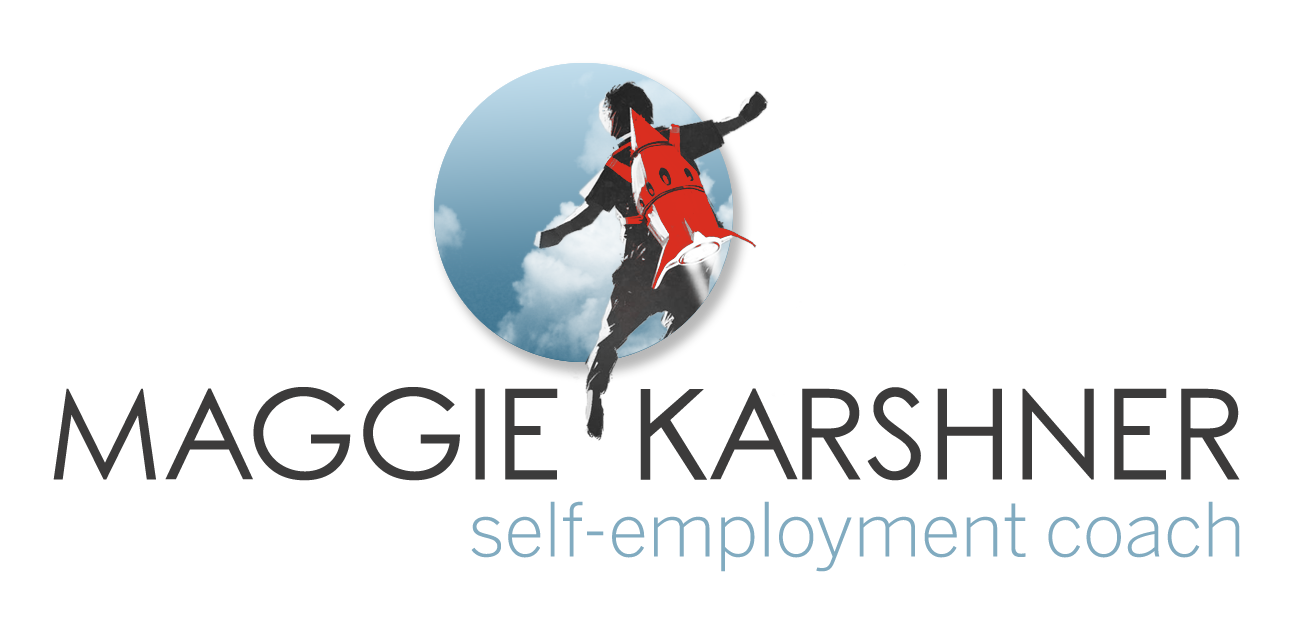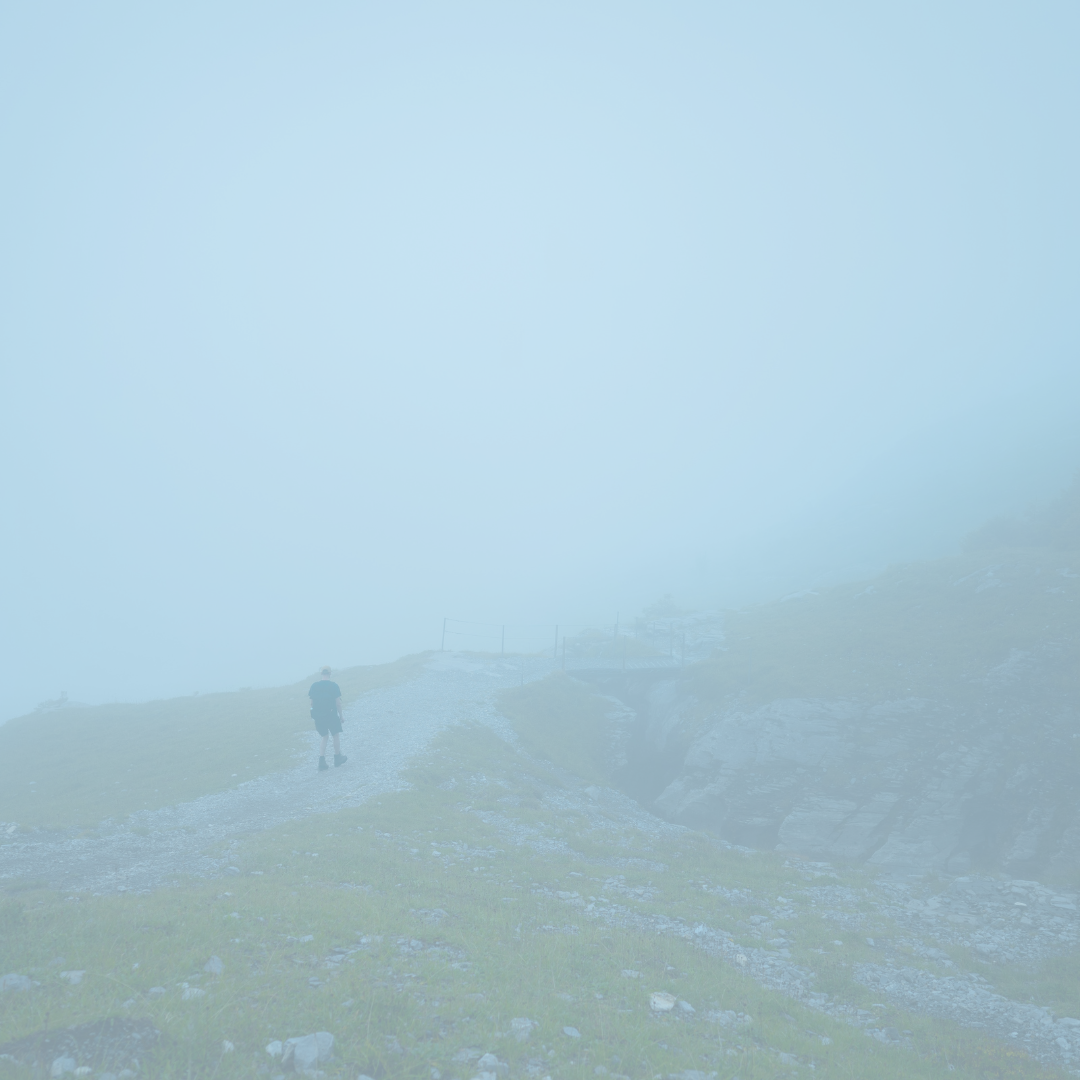Courage, Fear, and Life (and entrepreneurship)
/I challenge you to find me an entrepreneur who did not experience fear when they were getting started. It's the number one thing people reference when they explain why they're not starting that business they want to start. If you're reading this post, it's probably something you have experienced, or are experiencing now.
Regardless of where you are in your entrepreneurial journey, even if you don't have an idea for a business yet, fear is something worth addressing. Addressing fear can help you live your whole life more fully, and, when that perfect business idea comes and bites you in the butt, you'll have more tools to help you make that idea a reality!
I speak from first hand experience when I say that facing fears is a skill that I've used as an entrepreneur. I've been making a specific, conscious effort to face my fears for the past 5 or 6 years, which predates my first business venture. My work facing my fears has included working with a therapist on phobia desensitization training, and then reapplying what I learned to multiple different goals and situations. I'd love to take this opportunity to share some pearls I've learned on this journey:
Courage feels exactly like Fear
I think people have this idea that courage is a prideful or maybe steadfast and confident type of feeling. I have never in my life experienced courage in this way. To me courage feels pretty identical to fear. In cases where I'm doing what's morally right, yet still terrifying, it may have a slight tinge of conviction that your run of the mill fear doesn't have. In cases where I feel like there's no hope of things working out in my favor, yet I'm compelled to continue, courage feels like dread mixed with fear.
Even afterwards, I typically don't feel proud or more confident. I feel like I made it through the gauntlet and I don't understand how I survived. If the same challenge arose again, it feels like it'd be no easier to master.
Courage feels terrible.
Why bother being courageous?
If courage feels so terrible, then why do I keep facing my fears? On my average days I ponder this endlessly. (On my low days I often don't face my fears.) On my good days I can see the value of facing fears.
Courage is like a capacity. If we tackle lots of little fears, it's not that those fears really get "easier" it's that we gain the capacity to tackle bigger fears. By making it through the gauntlet once, it's not that we're confident we can run that gauntlet a second time, it's that we've moved forward and can tackle *other* challenges. (Or other versions of the same challenge.) Always moving forward.
I believe the point of life is to always (to the best of one's abilities) be moving forward and into a full opening and unveiling of all that we are meant to do; a growth towards something even better. And moving forward necessarily involves facing fears and being courageous.
How do you tackle fear?
There's no one size fits all answer for this, but here are some tools I've picked up that help:
1. baby steps
Take that fear you want to conquer and break it down into steps. Now take the first step and break it down into super basic tasks. Now take a single task and find the smallest possible unit of doing that exists. It's probably something like "think about people who could help support me towards this goal." ...note: not "contact them," just "think about" them. The next step would be reaching out or researching to find these resources.
This may sound silly, but it's actually really important. Your baby steps must be small enough that absolutely any forward motion is demarcated. And every baby step must be celebrated. You are not stagnant, you are moving forward even if you've only taken the tinsy tiniest baby step. And practice celebrating baby steps when they're easy to accomplish so that you're in the habit of celebrating when you hit a tough step.
2. over educate yourself
Ignorance is the number one fuel of fear. As much as possible research things (look, they all count as many many baby steps!) Understanding things inside and out makes them less scary. In my desensitization training they had me look at and fully understand the subject of my phobia. It was terrible to have to face the symbol of my fear without actually facing the thing I was afraid of. It was terrible and manageable (we'll dig into that more in the next point.)
If your fear is starting a business, then maybe in addition to learning all about your field, you interview people running businesses in your field, and you take a class on business. (Maybe my new class Plan Your Unicorn: Developing Profitable Self Employment?)
3. wait out the wave of anxiety
There's a helpful distinction between fear-fear and anxiety-fear. Being out in the woods and afraid there might be a bear is an anxiety-fear. Being face to face with a bear is a fear-fear. This is a helpful distinction because anxiety-fears have a tendency to pass. You might worry there are bears in the woods, but after an hour, you've forgotten about it. When researching something you're afraid of, it might prompt anxiety, but then it passes. Even when starting a business you might have acute experiences of fear around failure, but you're just starting and it's too early that you could actually be failing, and so it passes. Breathe and move on. Keep moving forward, baby step by baby step, millimeter by millimeter. When the anxiety-fear hits, take a moment of pause until the feeling to passes.
4. personal pep talks
Be kind to yourself and cheer yourself on. Facing fears is really seriously hard. Even if they're only tiny fears. Find opportunities to be your own crazy soccer mom and your own best friend. My personal cheers are "Come on Mags!" and "You got this. You got this Mags." (Note that "Mags" is a name *only* I call myself. No other human calls me Mags, and I like it that way. Maybe you too have a "just between me, myself, and I" name?)
5. have a point of reference to build confidence
You've done other hard things besides conquer this fear. Think of the hardest thing you've ever done and keep that in your back pocket. When the anxiety-fear or the fear-fear is high, think to yourself: "I did that thing and survived. I'll survive this too." Bonus points if you think of a couple different difficult things that relied on different skills. I've got different confidence reference points for public speaking, teaching a class, difficult one-on-one conversations, and difficult group conversations.
6. pick your battles
Sometimes now is not the time to face that particular fear and that's ok. There's no punishment in this, so try not to get down on yourself for something silly like "giving up." You're not giving up; you're putting off the battle for another day and that is very smart.
Furthermore, don't get concerned that this will be your only opportunity to address that fear. There's this uncanny thing that happens where if you're meant to be dealing with that fear, you will have plenty of opportunities to try. In fact, often, when I'm faced with many similar challenges I think to myself "Oh! The universe really wants me to work on this right now. Ok, I'll do my best!" And if I'm having no opportunities to practice the thing that I want to work on, then I take it like a snow day: an unexpected opportunity to take a break and/or work on other things.
Fear - a gift?
After many years of working with fear I'm finally coming to see it like a relative I don't really like all that much. Uncle Joe comes to Thanksgiving, but after all these years you've figured out if you put on the game and hand him a beer, he's rather tolerable. And maybe, once you're full up on turkey and wine, you can see him as part of this thing called "family" and not an annoyance.
I know for me, fear is no longer a barrier, but merely a hurdle. It's an indicator that something is worth doing and that real deep growth is on the horizon, if I can just jump this hurdle.



